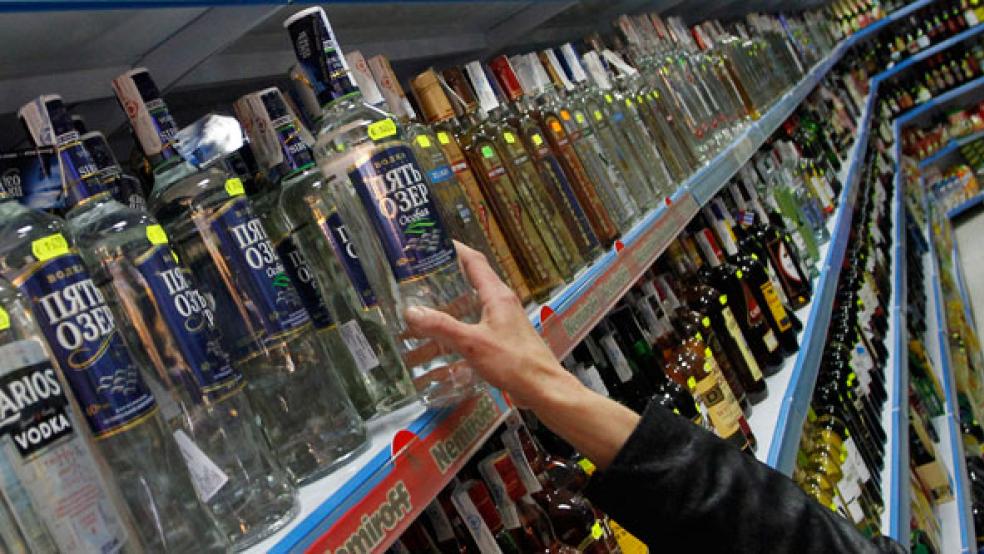Increasing the minimum price of alcohol by 10 percent can lead to immediate and significant drops in drink-related deaths and may also have long-term beneficial health effects, according to a study published on Thursday.
Canadian researchers found that deaths caused by alcohol between 2002 and 2009 in the western province of British Columbia dropped when the minimum alcohol price was increased, while alcohol-related deaths rose when more private alcohol stores were opened.

The findings will be keenly scrutinized by alcohol policy makers, particularly in Britain where the government plans to introduce a minimum price on alcohol to try to clamp down on binge drinking and anti-social behavior. The United States does not currently set a minimum alcohol price.
"This study adds to the scientific evidence that, despite popular opinion to the contrary, even the heaviest drinkers reduce their consumption when minimum alcohol prices increase," said Tim Stockwell of the University of Victoria's Center for Addictions Research of British Columbia, who led the study.
RELATED: Had a Few Too Many? So Did Half of All in the ER
John Holmes of the alcohol research group at Britain's University of Sheffield said Stockwell's study was a major contribution to evidence about minimum alcohol pricing and gave a "strong indication that the policy has reduced the consumption levels of those drinking at hazardous and harmful levels."
Stockwell's team, whose research was published in the journal Addiction, looked at three categories of death linked to alcohol – wholly alcohol attributable, acute, and chronic – analyzing death rates across the time period against increases in government-set minimum prices of alcohol drinks.
The study was complicated by another policy in British Columbia under which alcohol sales were partially privatized after having previous been controlled through government-owned stores. This led to a substantial rise in the availability of alcohol.
Stockwell said the major finding was that increased minimum alcohol prices were associated with immediate, substantial and significant reductions in wholly alcohol attributable deaths, with a 10 price rise followed by a 32 percent death rate drop.
Significant falls in chronic and total alcohol associated deaths were also detected between two and three years after minimum price increases. At the same time, a 10 percent increase in the number of private liquor stores was associated with a two percent rise in acute, chronic, and total alcohol associated death rates.
Stockwell said the reason for the lower death rates were likely to be due to the fact that raising the price of cheaper drinks makes heavy drinkers drink less.
Earlier research conducted by the same team and published in January last year found that each 10 percent increase in the minimum price of alcohol led people to drink 3.4 percent less alcohol overall.

